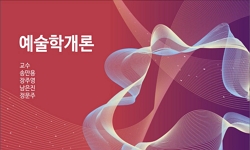Kim Kwang-gyun was the poet who expressed the poetic formativeness distinctly among the 1930's Modernists. But he has been estimated negatively because of passive emotion toward reality, image which was little more than rhetorical method, and sentimen...
http://chineseinput.net/에서 pinyin(병음)방식으로 중국어를 변환할 수 있습니다.
변환된 중국어를 복사하여 사용하시면 됩니다.
- 中文 을 입력하시려면 zhongwen을 입력하시고 space를누르시면됩니다.
- 北京 을 입력하시려면 beijing을 입력하시고 space를 누르시면 됩니다.
https://www.riss.kr/link?id=A76172735
- 저자
- 발행기관
- 학술지명
- 권호사항
-
발행연도
2006
-
작성언어
Korean
-
주제어
김광균 ; 조형성 ; 모더니티 ; 형태의 사상성 ; 시각예술 ; 이미지즘 ; 근대적 감정 ; Kim Kwang-gyun ; Formativeness ; Modernity ; 'The thought of form' ; Visual arts ; Imagism ; Modern emotion
-
등재정보
KCI등재
-
자료형태
학술저널
- 발행기관 URL
-
수록면
97-118(22쪽)
-
KCI 피인용횟수
15
- 제공처
- 소장기관
-
0
상세조회 -
0
다운로드
부가정보
다국어 초록 (Multilingual Abstract)
First, the relationship between lyrics and the visual arts is examined. Kim Kwang-gyun was influenced by pictures through the friendship with other artists and the western picture book, and it was applied to pictorial composition in order to catch and structure the images.
Next, the organic relationship between form and content, and between the thought and the form are examined, centering around 'the thought of form', that is, the key words of Kim Kwang-gyun' poetics. This concept shows that his pictorial isn't nothing but a technique of imagism, but also shows that it is a means of a formativeness which can express modern reality in a new method.
Finally, modern characteristics which were expressed in Kim Kwang-gyun's poetry are discussed. For him, emotion is the substitution or modified product of idea, and it is mainly related to the frustration toward reality and modernity. The grief and gloom shown in his poems can be said to be not only the product which was caused by the experience of city life, but also the modern emotion which is differentiated from the recitation of Romanticism.
These modern characteristics are not limited to the nature of emotion, but they are shown in the methods of expressing the emotion. The point of Modernity shown in Kim Kwang-gyun' poetry is that sentimentality was constructed formatively and it also secured the appreciation of the beautiful. Thus, the formativeness of Kim Kwang-gyun's poetry should be understood, beyond the narrow category of pictorial methods, in terms of modern aesthetics of Modernism poetry in the 1930's.
Kim Kwang-gyun was the poet who expressed the poetic formativeness distinctly among the 1930's Modernists. But he has been estimated negatively because of passive emotion toward reality, image which was little more than rhetorical method, and sentimentality which stood for pictures. The purpose of this study is to review these evaluations and to explore the formativeness and modernity of Kim Kwanggyun's poetry.
First, the relationship between lyrics and the visual arts is examined. Kim Kwang-gyun was influenced by pictures through the friendship with other artists and the western picture book, and it was applied to pictorial composition in order to catch and structure the images.
Next, the organic relationship between form and content, and between the thought and the form are examined, centering around 'the thought of form', that is, the key words of Kim Kwang-gyun' poetics. This concept shows that his pictorial isn't nothing but a technique of imagism, but also shows that it is a means of a formativeness which can express modern reality in a new method.
Finally, modern characteristics which were expressed in Kim Kwang-gyun's poetry are discussed. For him, emotion is the substitution or modified product of idea, and it is mainly related to the frustration toward reality and modernity. The grief and gloom shown in his poems can be said to be not only the product which was caused by the experience of city life, but also the modern emotion which is differentiated from the recitation of Romanticism.
These modern characteristics are not limited to the nature of emotion, but they are shown in the methods of expressing the emotion. The point of Modernity shown in Kim Kwang-gyun' poetry is that sentimentality was constructed formatively and it also secured the appreciation of the beautiful. Thus, the formativeness of Kim Kwang-gyun's poetry should be understood, beyond the narrow category of pictorial methods, in terms of modern aesthetics of Modernism poetry in the 1930's.
참고문헌 (Reference)
1 "현대 한국시와 그 ‘서구적’ 잔상 한국시사연구" 1980
2 "한국 현대시와 모더니즘" 신구문화사 1996
3 "한국 모더니즘 문학의 지형도" 푸른사상 2005
4 "한국 모더니즘 문학 연구" 1988
5 "짐멜의 모더니티 읽기" 새물결 2005
6 "이미지 -시각과 미디어" 1990
7 "시각과 시각성" 경성대 출판부 2004
8 "문학의 논리" 서음출판사 1989
9 "모더니즘 시의 ‘현실’과 그 기호적 맥락 : 한국 현대시와 언어의 풍경" 태학사 1999
10 "마음의 개념" 문예출판사 1994
1 "현대 한국시와 그 ‘서구적’ 잔상 한국시사연구" 1980
2 "한국 현대시와 모더니즘" 신구문화사 1996
3 "한국 모더니즘 문학의 지형도" 푸른사상 2005
4 "한국 모더니즘 문학 연구" 1988
5 "짐멜의 모더니티 읽기" 새물결 2005
6 "이미지 -시각과 미디어" 1990
7 "시각과 시각성" 경성대 출판부 2004
8 "문학의 논리" 서음출판사 1989
9 "모더니즘 시의 ‘현실’과 그 기호적 맥락 : 한국 현대시와 언어의 풍경" 태학사 1999
10 "마음의 개념" 문예출판사 1994
11 "도상과 사상" 1991
12 "김광균의 ‘형태의 사상성’과 이미지즘의 수사학" 79집 : 2003
13 "김광균 연구" 국학자료원 2002
14 "김광균 시의 회화적 공간과 그 조형성" (2) : 1986
15 "김광균 시 연구" (11) : 2002
16 "기질적 이미지스트" 문장 2 : 1986
17 "1930년대 한국 도시적 서정시 연구" 2003
동일학술지(권/호) 다른 논문
-
- 한국시학회
- 조영복(Cho Young-Bok)
- 2006
- KCI등재
-
『질마재 神話』에 나타난 ‘비천함(Abjection)’의 상상력
- 한국시학회
- 정끝별(Jeong Keut-Byul)
- 2006
- KCI등재
-
- 한국시학회
- 한명희(Han Myeong-hee)
- 2006
- KCI등재
-
- 한국시학회
- 임현순(Im Hyun-Soon)
- 2006
- KCI등재
분석정보
인용정보 인용지수 설명보기
학술지 이력
| 연월일 | 이력구분 | 이력상세 | 등재구분 |
|---|---|---|---|
| 2025 | 평가예정 | 재인증평가 신청대상 (재인증) | |
| 2022-01-01 | 평가 | 등재학술지 선정 (계속평가) |  |
| 2021-12-01 | 평가 | 등재후보로 하락 (재인증) |  |
| 2018-01-01 | 평가 | 등재학술지 유지 (등재유지) |  |
| 2015-01-01 | 평가 | 등재학술지 유지 (등재유지) |  |
| 2011-01-01 | 평가 | 등재학술지 유지 (등재유지) |  |
| 2009-01-01 | 평가 | 등재학술지 유지 (등재유지) |  |
| 2006-01-01 | 평가 | 등재학술지 선정 (등재후보2차) |  |
| 2005-05-26 | 학술지등록 | 한글명 : 한국시학연구외국어명 : The Korean Poetics Studies |  |
| 2005-01-01 | 평가 | 등재후보 1차 PASS (등재후보1차) |  |
| 2003-01-01 | 평가 | 등재후보학술지 선정 (신규평가) |  |
학술지 인용정보
| 기준연도 | WOS-KCI 통합IF(2년) | KCIF(2년) | KCIF(3년) |
|---|---|---|---|
| 2016 | 0.67 | 0.67 | 0.74 |
| KCIF(4년) | KCIF(5년) | 중심성지수(3년) | 즉시성지수 |
| 0.74 | 0.71 | 1.366 | 0.11 |
연관 공개강의(KOCW)
-

Tradition and Modernity and Korean Political Philosophy
K-MOOC 성균관대학교 K학술확산연구센터 Bi hwan Kim, Yutang Jin, Ji young Moon, Sang bok Ha, Baldwin Wong, Kyung rok Kwon, Zhuoyao(Peter) Li, Sung moon Kim, Jun tae Kim -

Tradition and Modernity and Korean Political Philosophy
K-MOOC 성균관대학교 K학술확산연구센터 Bi hwan Kim, Yutang Jin, Ji young Moon, Sang bok Ha, Baldwin Wong, Kyung rok Kwon, Zhuoyao(Peter) Li, Sung moon Kim, Jun tae Kim -

영상예술의 이해
계명대학교 서정남 -

예술학개론
동서대학교 장주영(Juyoung Chang). 송만용(Manyoung Song), 남은진(Eunjin Nam), 정문주(Moonjoo Jung) -

주관주의, 아이러니 그리고 현대성의 위기
COURSERA Jon Stewart, PhD, Dr theol & phil




 KCI
KCI DBpia
DBpia


